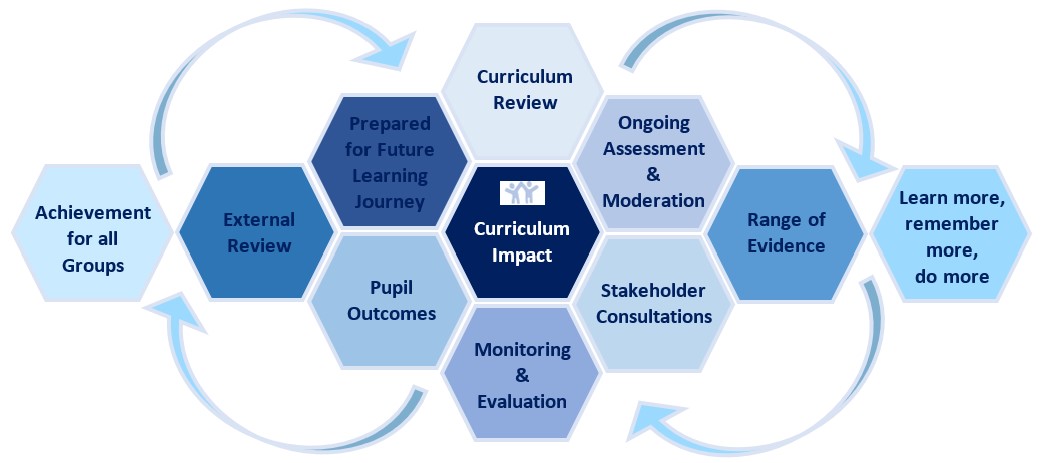Curriculum Impact: The Difference Our Curriculum Makes
At Woodstock CE Primary School we strive for all pupils to achieve their absolute potential, by having high expectations across all aspects of school life. Children make very good progress from Foundation Stage and, by the end of Key Stage Two, do extremely well when compared with national and local results across all subjects at both the expected standard and at greater depth. Our stimulating curriculum prioritises core skills in English, Maths and PSHE whilst actively encompassing the acquisition of knowledge and skills across all areas of the National Curriculum. The innovative practice across the school provides a strong foundation and opportunities for children to collaborate and develop social skills both indoors and out. This curriculum design ensures that the needs of individual and small groups of children can be met within the environment of high quality-first teaching, supported by targeted, proven interventions where appropriate. In this way it can be seen to impact in a very positive way on children’s outcomes. The impact and measure of our curriculum is to ensure children not only acquire the appropriate age-related knowledge linked to the curriculum but also skills which equip them to progress from their starting points. In shaping our curriculum this way, progress is measured and evidenced for all children, regardless of their starting points or specific needs. Enjoyment of the curriculum promotes achievement, confidence, and excellent behaviour.

When our children leave us, as well as being ready for the transition into the KS3 curriculum, they have a wealth of transferrable skills which have been developed throughout their time at primary school in an inclusive and nurturing environment. Our children enjoy lessons, and we believe this early love of learning stimulates children to become life-long learners. Our work on promoting social skills and character traits through our PSHE and Relationships curriculum, as well as directly linking to our school’s Christian values, enables children to become excellent role models and aspire to be the very best they can be. Developing their independence, motivation and attitudes as learners, and their sense of responsibility as future citizens is at the heart of our teaching and learning.
We ensure quality-first teaching enables our children to develop their long-term memories and define their progress as knowing more and remembering more. Teachers and staff work hard to plan a broad, balanced, and ambitious curriculum which is expertly delivered to ensure a child’s entire school experience enables them to develop a deep body of knowledge which will see them through to further study, work and a successful adult life in whatever pathway they choose.
We are proud that once the children from Woodstock CE Primary have moved on to secondary school, they have been supported through their transition; have been exposed to rich vocabulary and have high aspirations and self-belief all through the teaching of this broad and balanced curriculum.
Assessment & Pupil Outcomes
Assessment should have a purpose, be meaningful, impact on outcomes and inform future teaching and learning. We use a range of assessment strategies to build a clear picture of the progress our children make. They are assessed within every lesson which helps the teacher plan the next steps of learning, and regular ‘check-ins’ take place to shape and create a bespoke curriculum to meet the needs of our learners. Assessment week takes place towards the end of each long term (3x a year), with assessment data being gathered, analysed, and interpreted, with the support of SLT in Pupil Progress meetings. Day-to-day teacher assessment and moderation, from a range of evidence, also helps to inform overall termly judgements being made. Children are expected to make good or better progress in all subjects and this individual progress is tracked and reported to parents at Parents’ Evenings and within End-of-Term Reports. Bespoke support and interventions are put in place to accelerate the progress of any children who are identified as ‘at risk’ learners.
Class Teachers are responsible for the day-to-day organisation of the curriculum. Phase and Subject Leaders monitor weekly lesson plans, medium term and long-term plans, ensuring that all classes are taught the full requirements of the agreed schemes of work, and that all lessons have appropriate learning objectives.
Subject Leadership
Subject Leaders play an important part in the success of the curriculum by leading a regular programme of monitoring, evaluation and review and the celebration of good practice contributes to the ongoing commitment to evolve and improve further. All subject leaders are given access to training and CPD opportunities to keep developing their own subject knowledge, skills and understanding, so they can support curriculum development and the professional practice of colleagues.
The role of the Subject Leader and/or team is to:
- Provide a strategic lead and direction for the subject.
- Support and advise colleagues on issues related to the subject.
- Monitor pupils’ progress in that subject area.
- Provide efficient resource management for the subject.
- Keep up to date with developments in their key area of learning at both national and local levels.
- Monitor how their subjects are taught through monitoring the medium- and short-term planning ensuring that appropriate teaching strategies are used.
- Reviewing curriculum plans for their key areas ensuring there is full coverage of the National Curriculum and that progression is planned for.
- Review the way the subjects are taught in the school and plan for improvement linking to whole school priorities.
- Lead sustainable improvement through supporting colleagues and others.
- Judge standards within their subjects so they indicate the achievements of children at each key stage and indicate expectations of attainment.
- Evaluate teaching and learning, and assessment within their subjects.
- Have a secure awareness of the schemes of work for EYFS, KS1 and KS2.
- Lead pupil consultations to gain feedback about areas of the curriculum
- Report to the Headteacher and Curriculum Lead on the strengths and areas for development of the subject and the strategies for improvement.
It is the role of each Subject Leader and/or team to keep up to date with developments in their subject, at both national and local level. They review the way the subject is taught in the school, and plan for improvement - development planning links to whole-school objectives and priorities through the school’s Raising Achievement Plan and linked to individual appraisal targets for Leadership & Management. Each Subject Leader reviews the curriculum plans for the subject and sees that knowledge, progression and acquisition of skills is planned into schemes of work.
Governors & Accountability: Support & Challenge
Governors take an active role in supporting the Curriculum Review process. A termly schedule is in place to allow Subject Leaders with link Governors to see their subjects in action across the whole school. Governors take accountability for feeding into the Subject Leaders post-review report - these are shared and discussed at phase/staff meetings as appropriate. Reports are also shared with the full Governing Board so that they are fully kept in the loop. Where appropriate, Governors will support Curriculum reviews where the subject area links directly to their Raising Achievement Target.
Quality Assurance
We value the importance of and invest in Quality Assurance to ensure we maintain and improve our efficiency, leadership and pupil progress through self and external review. By working towards quality assurance standards, we ensure that both staff and children support high-quality inclusive teaching and learning. We work in partnership with the Local Authority, Diocese and wider school community to support and inform our monitoring and evaluation processes. The benefits of Quality Assurance to our school are:
- Provides us with accountability at all levels, including goal setting
- Supports ongoing school development, including quality of education
- Enables professional dialogue and outward thinking
- Sparks innovation








